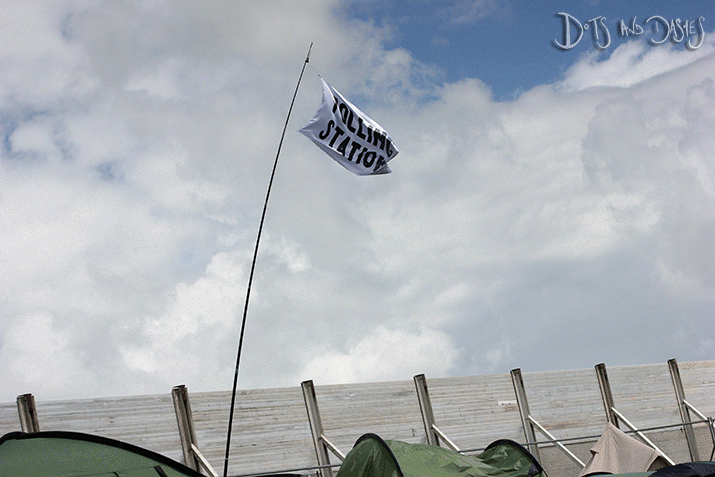“Liverpool voted to remain,” said one of a seemingly infinite number of Scousers down on Worthy Farm at around half eight on the Friday morning of the Glastonbury – or, for the purposes of this particular appraisal thereof, ‘Glastonbrexit’ – Festival of Contemporary Performing Arts 2016. His exclamation passed through no more than a mere two layers of polyester before I’d gotten the opportunity to employ what little battery remained on an iPhone as frazzled from the night before as I was to frantically, anxiously examine the outcome of the dumbest of modern-day referenda, but the tone of his voice seemed to suggest the (largely) likeminded, demonstrably muddied goers of Glastonbury had, as Damon Albarn later put it, been “failed” by democracy. And no matter the pathetic fallacy – the unremittingly monochromic colours looming overhead, nor the similarly, ‘seemingly infinite’ number of dark clouds decolourising it so – it was this hideous display of political manipulation that cast the darkest, most deeply discomforting of shadows over the weekend. Therefore, unfortunately, forecasts both meteorological and political had been proven conclusively incorrect…
There is this supremely pertinent quote taken from Julien Temple’s commensurately supreme portrayal of this ineffably fantastic (and often fantastical) occasion, that hears a bespectacled employee of some nonspecific insurance company confirm he’s completed the pilgrimage to Pilton in order to “be me; be really me. Because my job’s a bit mundane; desk-bound; not real.” And although this year’s Glastonbury brimmed with the glorious surrealities of everything from the politically, very active Shangri-La, to subterranean piano bars (albeit bereft of ‘poitín’ this time around), it all felt relatively normal when compared with the reality that the UK would, within a few years, no longer represent an EU member country; a reality a reported 83% of Glastonbury-goers voted against waking up to on the Friday morning aforementioned.
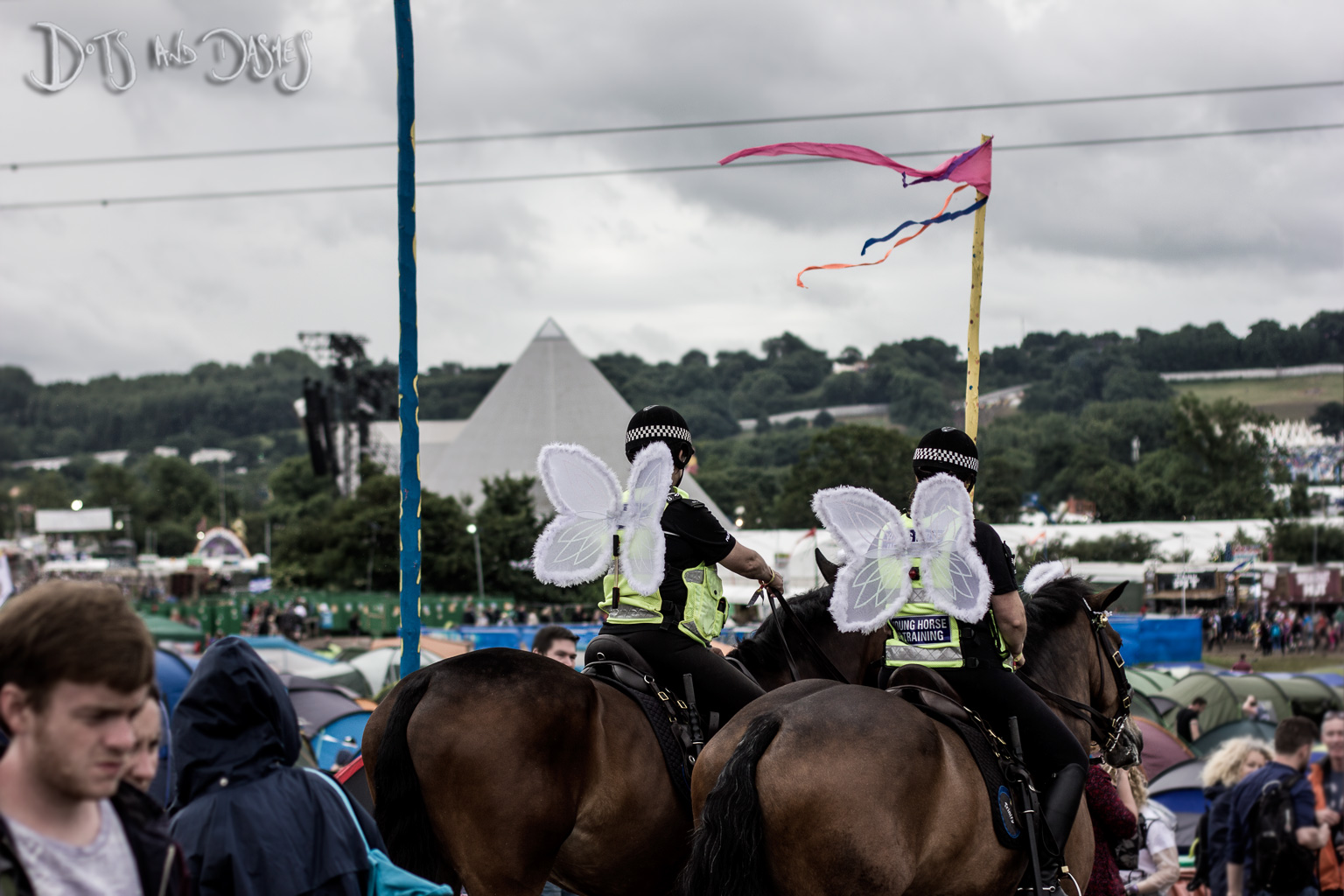
In theory, I thought that Glastonbury, being so far removed from quotidian mundanities, could, and indeed would be wholly enjoyed for its duration; that as we and our wellingtons sank into inches of mud with a similar consistency to Boris Johnson’s pre- and post-Brexit policies, we’d not allow fears of a fractious country – now, if not already, alas, very much a reality – to sink in until our return to terra firma. But in practice, such was – and remains – the gravity of this unspeakably grave situation, that it simply overshadowed so much of the festival; or the Friday, at the absolute least.
Of course, conceivably, the notion of tired, emotional ‘leftists’ being unable to best enjoy Glastonbury appeals all the more to gloating nationalists, at least filling what will, sooner rather than later, start to feel like the most hollow of victories with something; something fittingly Schadenfreudian, even. However, and – again – as Damon Albarn once put it, this “stroppy little island of mixed-up people” is, seemingly, about to become a lot more “stroppy”, and probably not much less demographically “mixed-up” in the coming months; small mercies, perhaps. But, as is true of both post-EU life and the show(s) likewise, it must go on; so, without further ado, on we go…
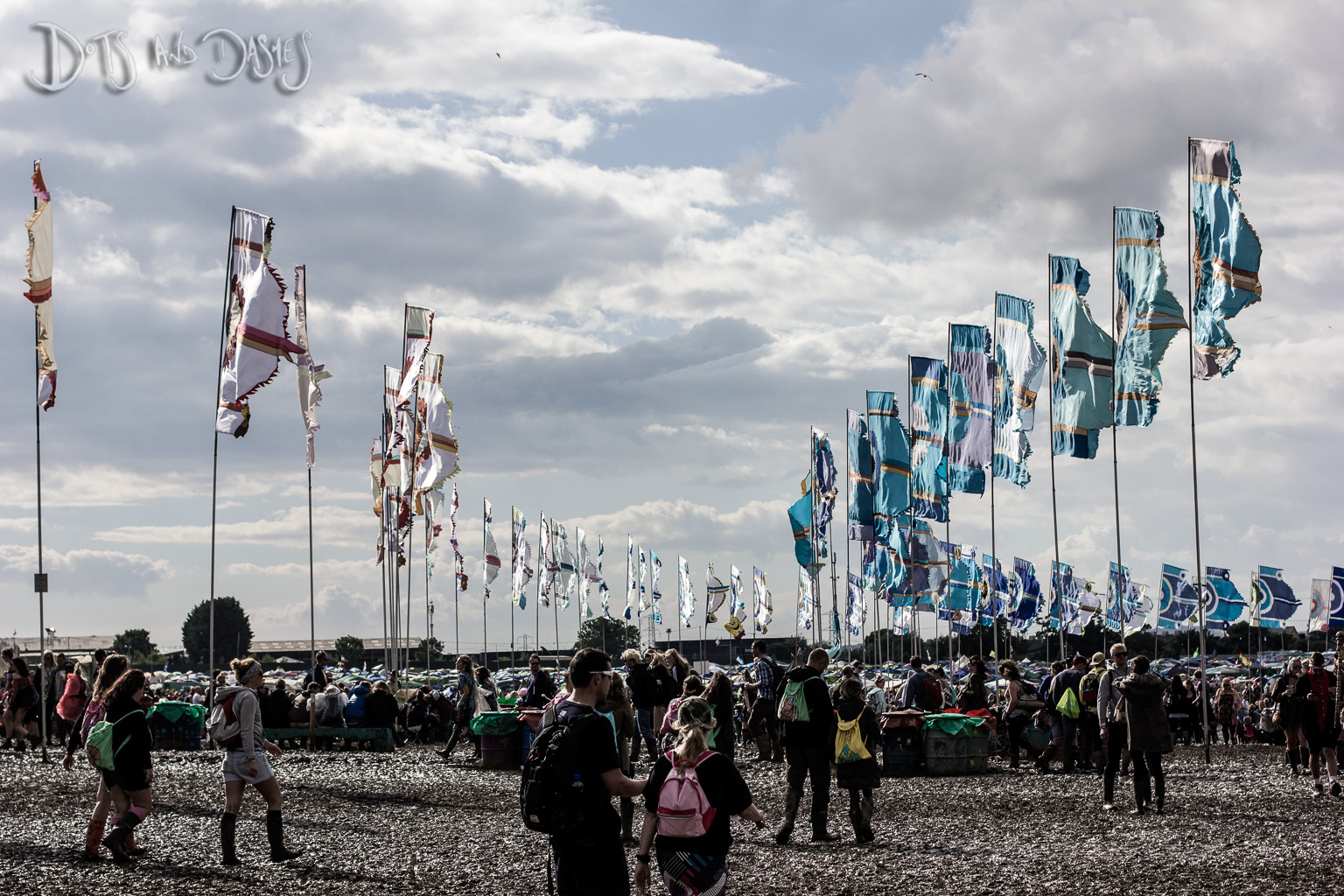
And, having already referred to Albarn not once but twice, his orchestrating The Orchestra of Syrian Musicians’ opening the Pyramid Stage is as apt a place to start as any. Of course, having previously headlined this very arena on a number of occasions, he’s better accustomed to closing proceedings, although there is something rather serendipitous about his being able to speak both up and out about the morning’s revelations before anybody else. Because, abandoning his trademark alacrity in favour of heartfelt eloquence, he speaks both from and to both the head and the heart. Prior thereto, a deplorably slapdash tribute to Jo Cox – consisting of nothing other than Portishead’s hexing rendition of SOS – reminds us of a life needlessly lost, boorish background chatter concerning spliffs, “selfie sticks,” etc. reasserting the utter, ridiculous selfishness this referendum has gone on to both exhibit and embody. But Albarn’s considered speech goes some way toward restoring a hope I pray goes on to be realised; to become “real”, if you will: welling up all the while, between deepening, “heavy[-]heart[ed]” pauses, he purely, simply says, “Democracy has failed us, because it was ill-informed. […] And I just want all of you to know that when we leave here, we can change that decision; it is possible.”
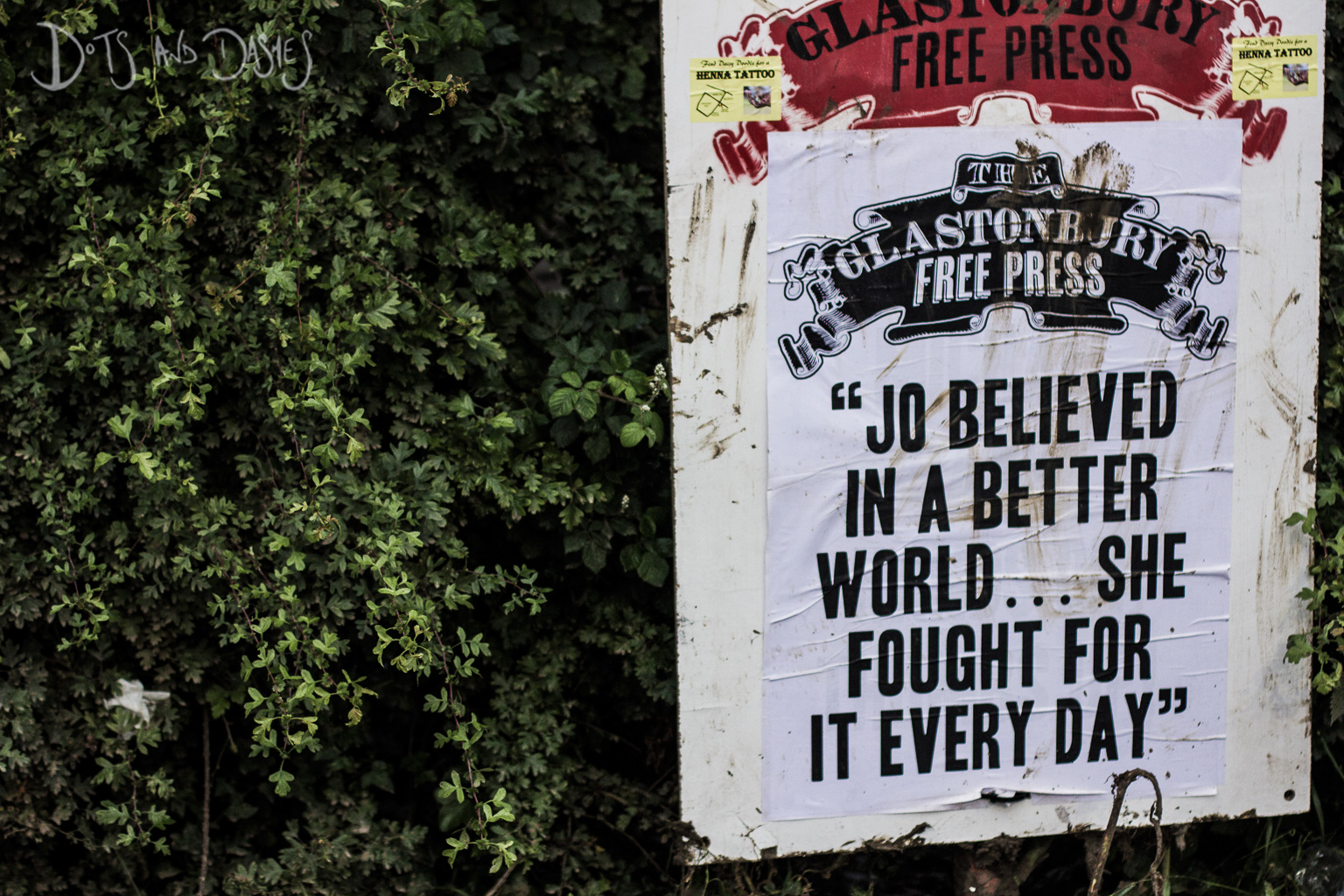
As potent a message as he’s perhaps ever orated from this very stage (and this is one with which – to reiterate – he’s rather well acquainted), in and of itself, it speaks volumes to this most voluminous of arenas. But it’s absolutely lent far further heft by what follows; an hour that ebbs and flows beautifully through Mali’s Bassekou Kouyaté’s nimble ngoni virtuosities, to the unblemished vocal brilliance of Beirut’s Faia Younan. It serves and stands as ‘a special performance to highlight and celebrate the remarkable music and culture of Syria’ and beyond, with those musicians involved having come “from a very difficult reality; one that is really hard for us to understand.” Again, naysayers could say that it’s one that’s far removed from Damon Albarn’s day-to-day, but his willingness to learn of, and lend a helping hand in leaving behind, said difficulties is beyond admirable.
But ultimately, much as some may be yearning for pan-Arab renditions of Girls and Boys and so on, this simply isn’t about Damon: instead, smoking incessantly, he stalks the sidelines as César Azpilicueta might the left wing of Albarn’s beloved Stamford Bridge – a bastion of dubious ideals, language, etc. – ensuring that, in much the same way that, unfortunately, the referendum has afforded xenophobia a platform, the voiceless are given a voice; the unamplified amplification. And the message, turned right up to eleven, is one of unquestioning inclusivity, as opposed to the unrelenting invective to which we, as a nation, have now become accustomed; one that we’re wholly culpable of both perpetrating and perpetuating. But most importantly, with the whole result having (at least ostensibly) hinged on indefensibly dogmatic Vote Leave campaigners’ scaremongering, concerning migration first and foremost, the fact that this ‘Orchestra’ was forged in Damascus speaks volumes – again – about the benefits of free movement between countries for the cultural betterment of every one, and everyone. And this is seen in the fact that aside from less commonly seen instruments, such as the kora or ngoni, those more conventional alternatives are played in superbly idiosyncratic, when not welcomely unfamiliar fashion.
Conceding somewhat to both time and place though, we get White Flag – a lyrical rumination on migration featuring Kano and Skepta, respectively of Jamaican and Nigerian descent – and, with “everything turning the wrong way ’round,” a “gently out[-]of[-]time” Out of Time. But the latter is less “the love song to set us free”, and more a wake-up call to an increasingly close-minded, if perhaps suppressed and politically repressed populace. “And you’ve been so busy lately/ That you haven’t found the time/ To open up your mind/ And watch the world spinning/ Gently out of time/ Tell me I’m not dreaming/ But are we out of time?” Albarn rhetorically questions, in a lyric that’s as suited to today as anything that Billy Bragg has ever recorded; we can now only hope there is still time enough to ourselves question, if not contest the outcome of this ‘dumbest of modern-day referenda’. And so in short, essentially, it may be those whose voices cried out to remain Albarn need now incentivise, therefore…
Because countries still firmly within the European Union are not only well represented, but those artists coming thence are very well received, also: Christine and the Queens’ excentricités français translate fairly well on a well rained-on Other Stage, Intranquillité, No Harm Is Done, Science Fiction and so on proving the music does indeed sound better with EU; that a tattoo on the underside of her right forearm, unapologetically promoting universal acceptance, reads, ‘WE ACCEPT YOU’ seems to silently verify this. Similarly, not even the antsy, tense atmosphere that plagues Silver Hayes annually can stifle the sheer ecstasy dealt by the Netherlands’ Fatima Yamaha, as the bassy sounds of Bas Bron’s purportedly Japanese-Turkish producer (or, rather, product) enthral the Wow! tent. Most attendees have pupils the size of Pluto, one nearby reveller’s face having turned to a wholly homogenised greige, as Bron thus has to battle it out with the incessant decompression of nitrous oxide, et cetera. But with the squelchy, lightly sleazy likes of Between Worlds, Borderless II and Sooty Shearwater, King of Migration (nominal nods to EU-know-what, perhaps?) in his arsenal, he’s certainly well equipped. But, in this land of honeyed mead, Bron does fail to milk sleeper beauty What’s a Girl to Do for all that it’s worth; which, given that it’s now twelve years old, and has amassed a, well, massive number of plays in that time, is probably a fair bit.
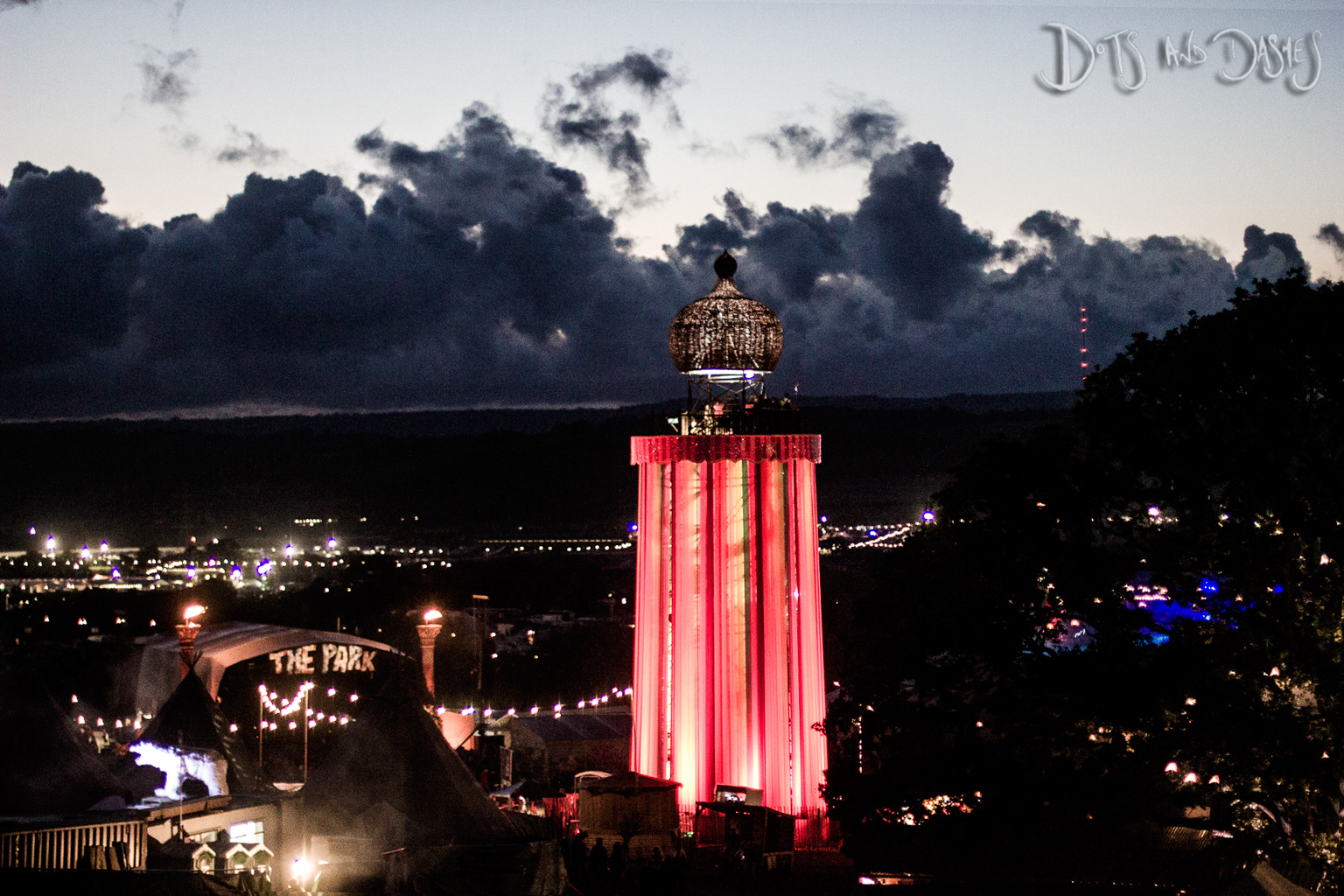
From rather further afield, if no less intoxicating for it, are Mbongwana Star, for whom even without the scintillating mbira-based sounds of Konono N°1, Malukayi shines brightest; subsequently, Tame Impala’s sprawling psych-pop sounds both lacklustre and lacking in the unquestionably lustrous qualities of latest full-length, Currents. As for those of a Canadian persuasion – and this is one that I sincerely feel has been remissly missing from Glastonbury bills in recent times – Grimes flatters to deceive with a set that is, if pretty inappropriate in terms of both time and place, on Sunday night up at The Park Stage, all too reliant on slipshod choreography instead of musical chops, leaving it up to Worthy Farm debutants BRAIDS to fly that most wonderfully rudimentary, yet stereotypically appropriate of flags. And the Calgary, Albertan trio do so with complete aplomb, the breakbeaten, DnB-indebted Blondie a perfect fit for the Glade. Better yet, however, is their pulsating, dB-pushing set in the Pussy Parlure, the (literal) chin-stroking seen on Saturday exchanged for (similarly literal) head-banging to the likes of Miniskirt, Sore Eyes and Warm Like Summer. However, once more, it’s a certain lyric (from Joni [from their recent Companion EP]) which sticks like a fucking lump in the pharynx: “We don’t know where we are going/ I wanna be fine without knowing, darling” sings Raphaelle Standell-Preston, and to dramatically recontextualise the line, the prospect of blissful ignorance now feels simultaneously appealing and impossible.
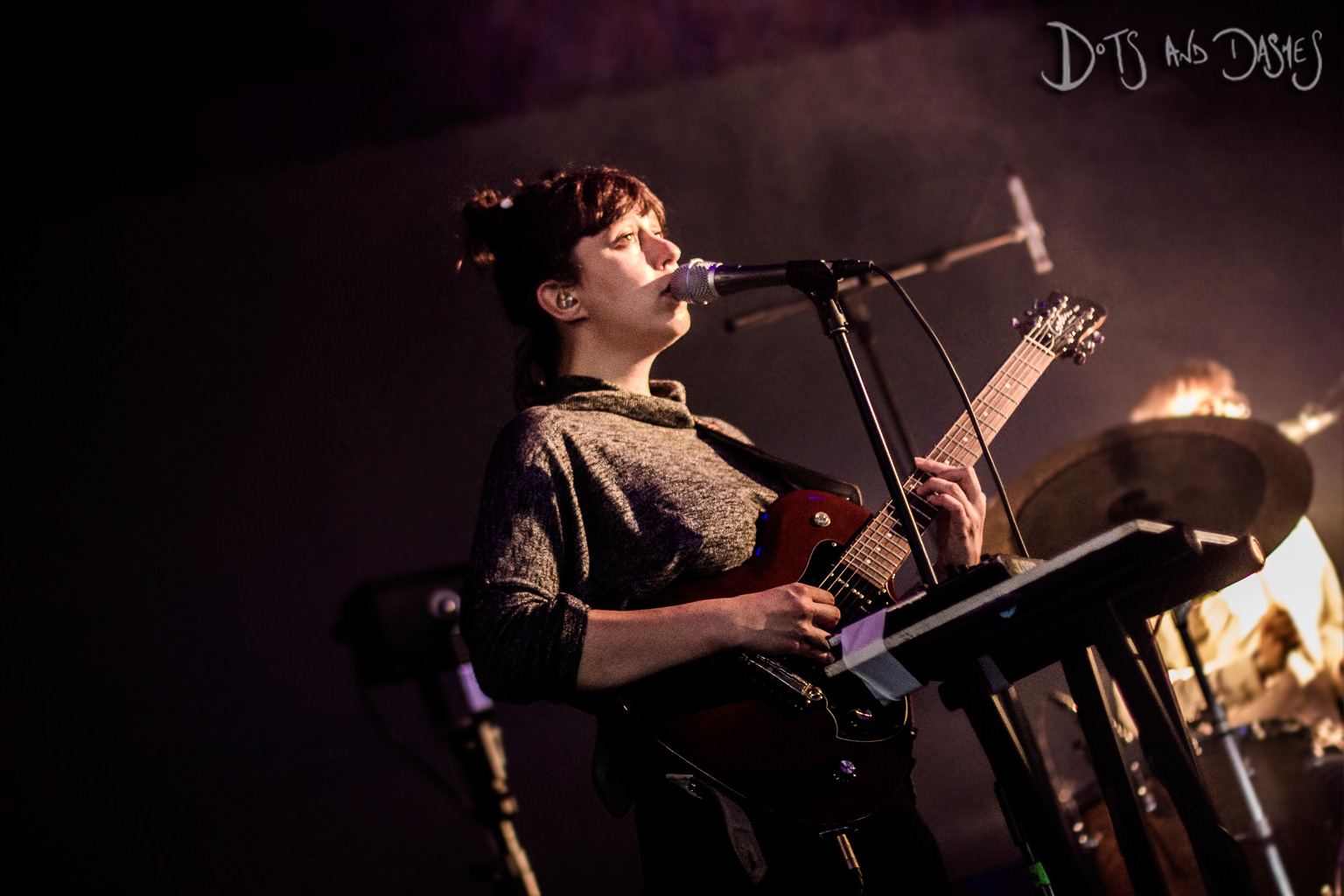
And while her native Scotland find themselves in the improbable position of potentially being dragged out of the EU against their will, a comparatively resounding majority (62%) of Scotsmen and women having voted to remain, Anna Meredith – composed as Nicola Sturgeon in this most turbulent of political climates – puts on a perfectly equilibrated performance on the West Holts Stage. Not that that prevents tubas from squawking wildly on Nautilus; guitars shredding recklessly on the effervescent The Vapours; nor the suitably gloopy, totally instrumental Honeyed Words capturing a truly captive audience like ectoparasites eternised in amber. But once again, eternised internally is a lyric taken from Taken, concerning “all our money running out/ What seemed a good idea has fast become a fraying waste of time.” Seems as though, as more and more Scots “forecast failing,” we could do with listening into what they’re saying rather more readily and willingly…
For as far as the English go this weekend, it’s difficult to deny that many renege on their civil responsibility as cultural spokespeople. It’s similarly difficult to deny the dangers of music and politics converging, but the referendum isn’t strictly political; it’s also exceptionally personal, making waking up to the news on the Friday – “a complete shock,” according to Emily Eavis (among many another) – infinitely more painful than when that of Michael Jackson’s death filtered through in 2009. Nevertheless, during what transpires to prove a particularly impersonal performance on the Pyramid Stage, offshore banker and onsite wanker Alex Turner’s swaggering around in a T-shirt what reads, ‘GIVE A DAMN’ exudes the sort of am-dram arrogance he’s now known, renowned, and abhorred for.
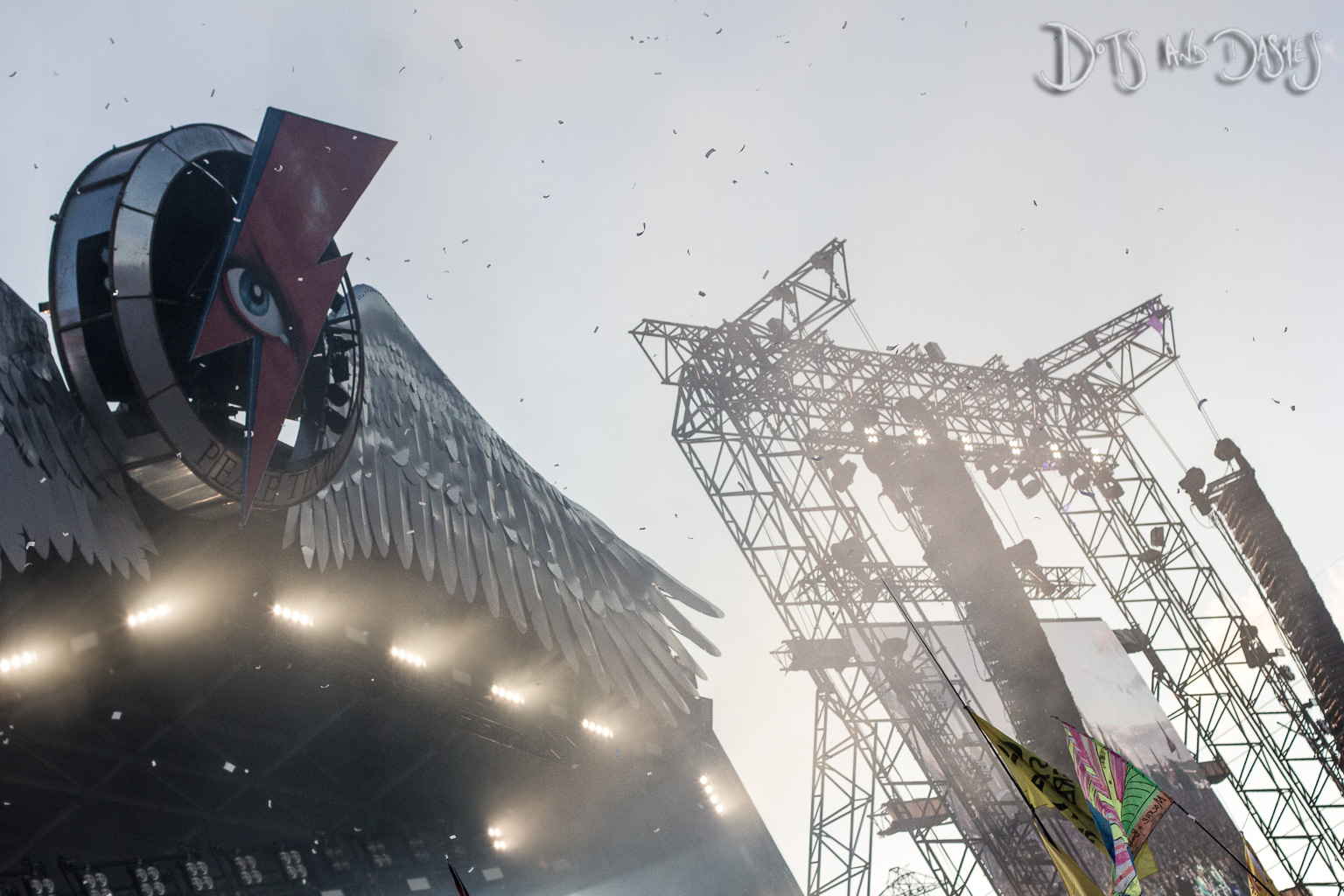
Far worse, however, is Foals’ Yannis Philippakis’ forever more arrogant – and, for that matter, abhorrent – comment that “for a lot of people, today was a disappointing day. But whatever the politics, we’re here; the sun is out; this is a big day for us; this is a great day for you.” Given what went down on the morning thereof, this day will never, ever go down as anything of the sort for anything-but-great Britain, and his borderline despotic tone certainly doesn’t help matters, either. “If only we could move away,” he may lament during Olympic Airwaves, he himself having migrated from Greece at the thoroughly vulnerable age of five, but that may yet prove impossible for many of a younger generation; and for the son of a Greek father and a South African-born Ukrainian-Jewish mother (this the Gospel According to Wikipedia), who’s previously voiced what he perceives to be “very legitimate concerns” over our EU membership, his comments I find reprehensibly irresponsible.
The atmosphere, perhaps aptly, turns pretty feral too, the boor stood beside me hurling everything from cans to fag ends into rows further forward for no apparent reason whatsoever, but for all the dark, satanic clouds that’ll later gather, there is this one thin sliver of silver lining to cling to: that during Two Steps, Twice, they play on for as many minutes before realising the PA is no longer on, making them out to look like right johnsons in the process. Again, small mercies, although we’d all have been better off had the PA simply continued playing Viet Cong as it was doing before Foals galloped onstage… (Indeed, to quote Continental Shelf, the inimitable feeling of not “want[ing] to face the world [because] it’s suffocating” has already well and truly set in by this juncture.)
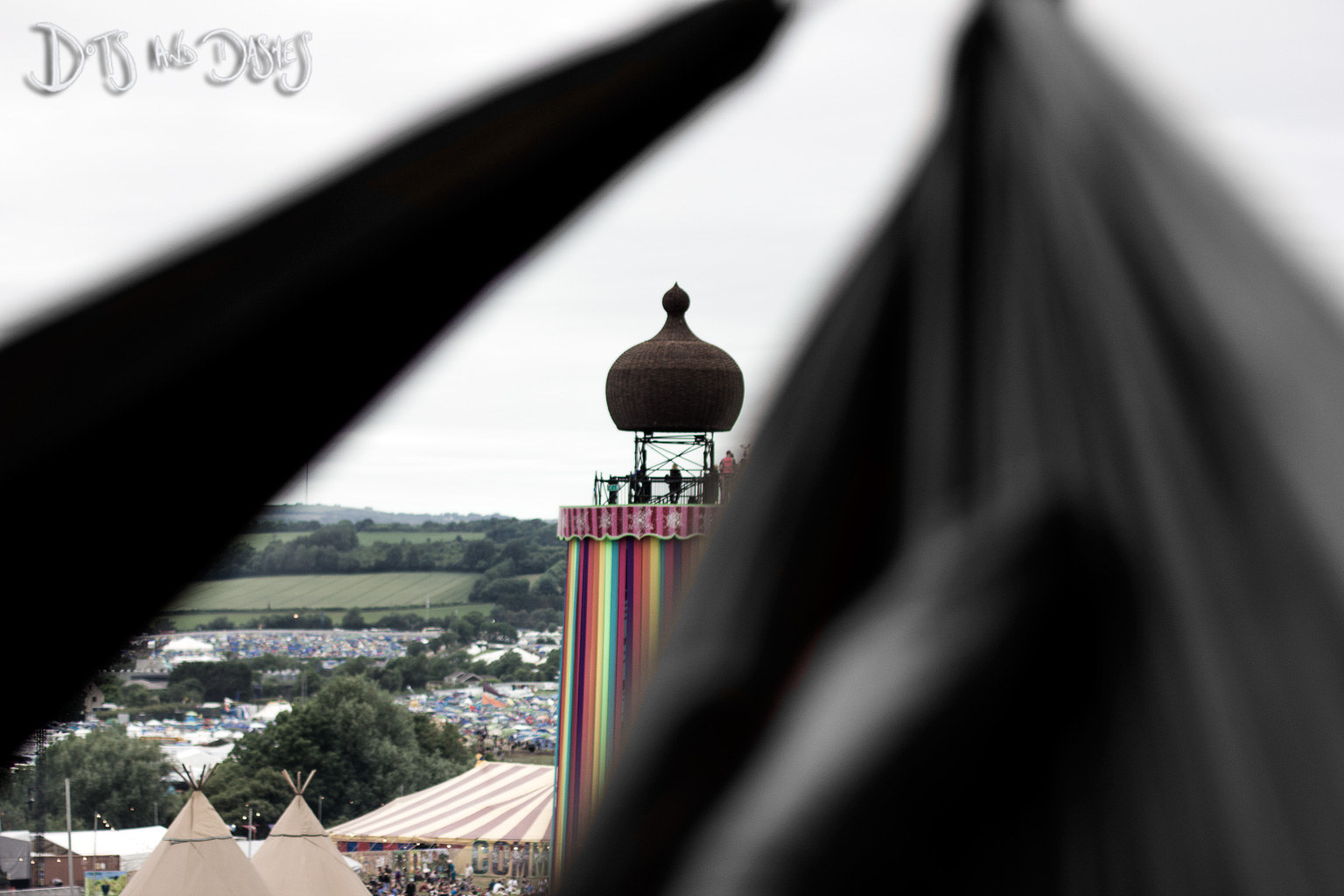
Also on Friday, Mabel – belonging to that ‘younger generation’ aforesaid, needless to say – irreproachably vocalises there being “so much more to love about you,” or her, or EU; quelling a scepticism first sown at last month’s The Great Escape as she does so, before Richard Hawley forewarns of the dangers of “star[ing] at the sun [which I’ve now taken to reading, or more likely not, as The Sun] too long,” in front of signs reading, ‘Welcome to SHEFFIELD’ (where, incidentally, 51% of a rather meagre 67.3% turnout voted to leave the EU). The English contingent fare rather better away from the Pyramid Stage, therefore…
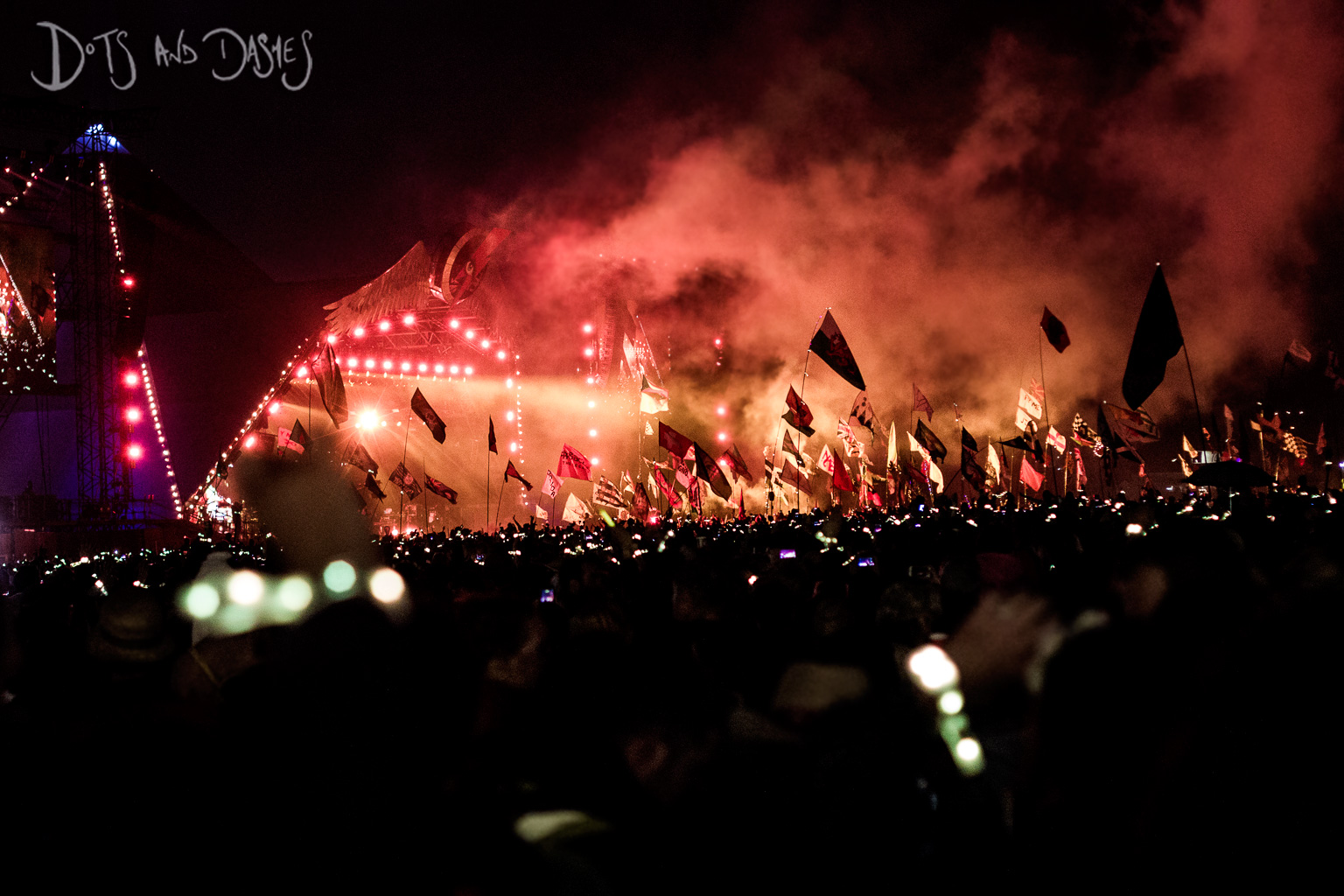
It’s here where, come Sunday, Coldplay stage their very own, and comparably pointless “Glastonbury referendum,” in order to discern whether Barry Gibb ought “to remain and play the greatest song of all time,” Stayin’ Alive, midway through the downright weirdest encore I’ve ever witnessed, but it’s Adele who I’m perhaps left most perplexed by. Because she could, and surely would have had the sort of intergenerational, cross-racial heft to anchor floating voters, or, conversely, to incentivise nonvoters in order to engender a different, far preferable result in this particular referendum. And so, for all of her (admittedly, decidedly endearing) crowing at how far back the crowd extends, and gurking aftertastes of “a dirty burger” in doting, but dumbfounded Brazilian fan Maria’s face, the feeling that she could, and surely should have done more prevails. When you’re singing to circa 150,000, and signing on dotted lines detailing reported £90,000,000 recording contracts, any which outcome may be of complete insignificance; but, significantly, much like a certain British country’s national electorate, it feels unmistakably like she’s welshed on her responsibility to do what now seems incontrovertibly right, weakening a worrisomely resurgent far-right in the process.
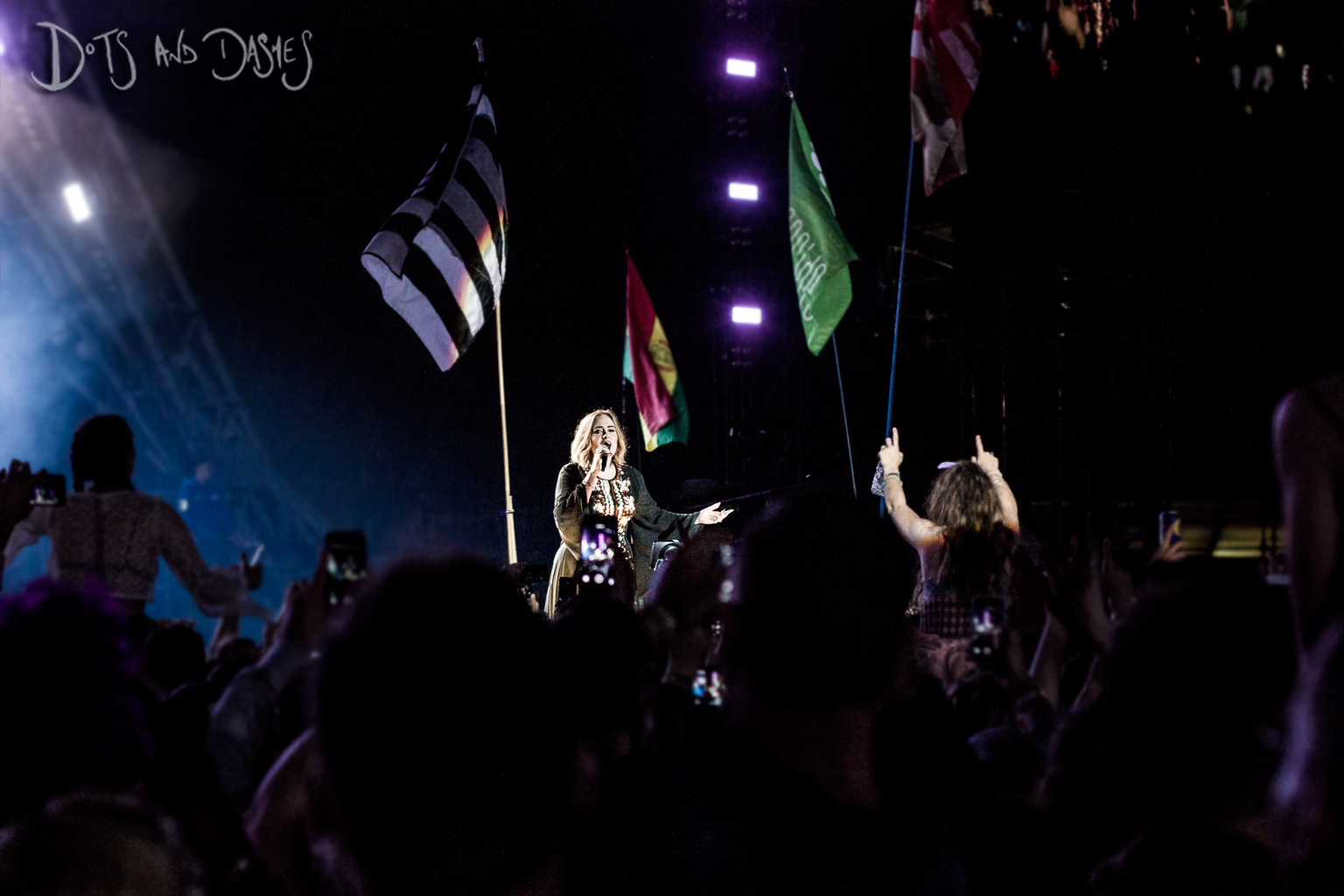
Regardless, going in with the lowest of expectations, her presence is surprisingly magnetic, as she makes the Pyramid Stage feel like a lowly pavilion somewhere in the newly dirtied-and-disgraced backwaters of ‘Arcadian’ Little England; Bexhill-on-Sea, maybe. “I didn’t want to come on, and now, I don’t want to go off,” but following on from Someone Like You, she’s off. And all the more switched on to our representing an integral, composite ‘piece of the continent, a part of the main’ anyway is PJ Harvey, who recites the ‘No Man is an Island’ strophe from John Donne’s Meditation XVII; his permanent words as pertinent today as we can now only presume they were in 1624. She plays for an inexplicably ‘diminishe[d]’ audience, showing we British up to be ‘clod[s]’ in another, rather less formal meaning of the word once again, as a solitary Italian flag unfurls and flutters in a slight, lithe wind. It makes for as poignant a moment as we’ll experience all weekend; one which is rife with feelings of uncertainty, if not quite finality.
And finally, a word on Glastonbury itself: for in spite of Emily Eavis’ longing to “stay in the bubble for as long as possible”, praising “the parallel universe people create here, [as well as] the positivity that people radiate”, there is certainly an air of finality to Athelstan Joseph Michael Eavis’ joining Chris Martin & Co. onstage for a surprisingly alright rendition of My Way. But if Glastonbury were to bow out this way – whether this should be the last one to be held on Worthy Farm, or the last one to be helmed by Michael himself – then it would surely be another real, true shame. For before his daughter exhorts we “rally together and [don’t] lose hope” in Sunday’s edition of The Glastonbury Free Press, she comments on how the festival “brings out the best in people.” And having very recently seen the categorical worst in people – or, first and foremost, politicians, ‘Brexiteers’ and ‘Regrexiteers’ – we could do with an annual reminder of those preferable features, at the absolute least…
